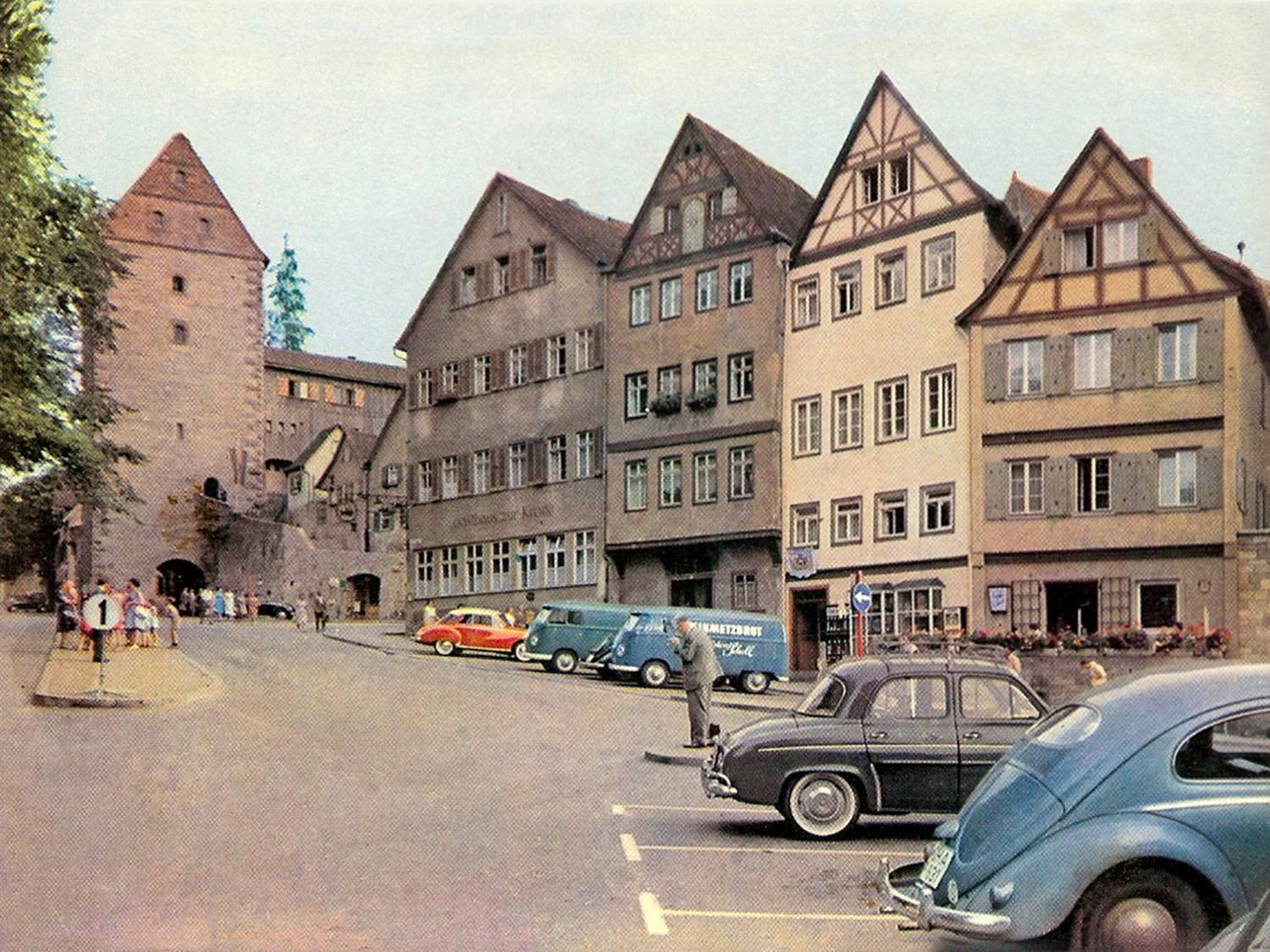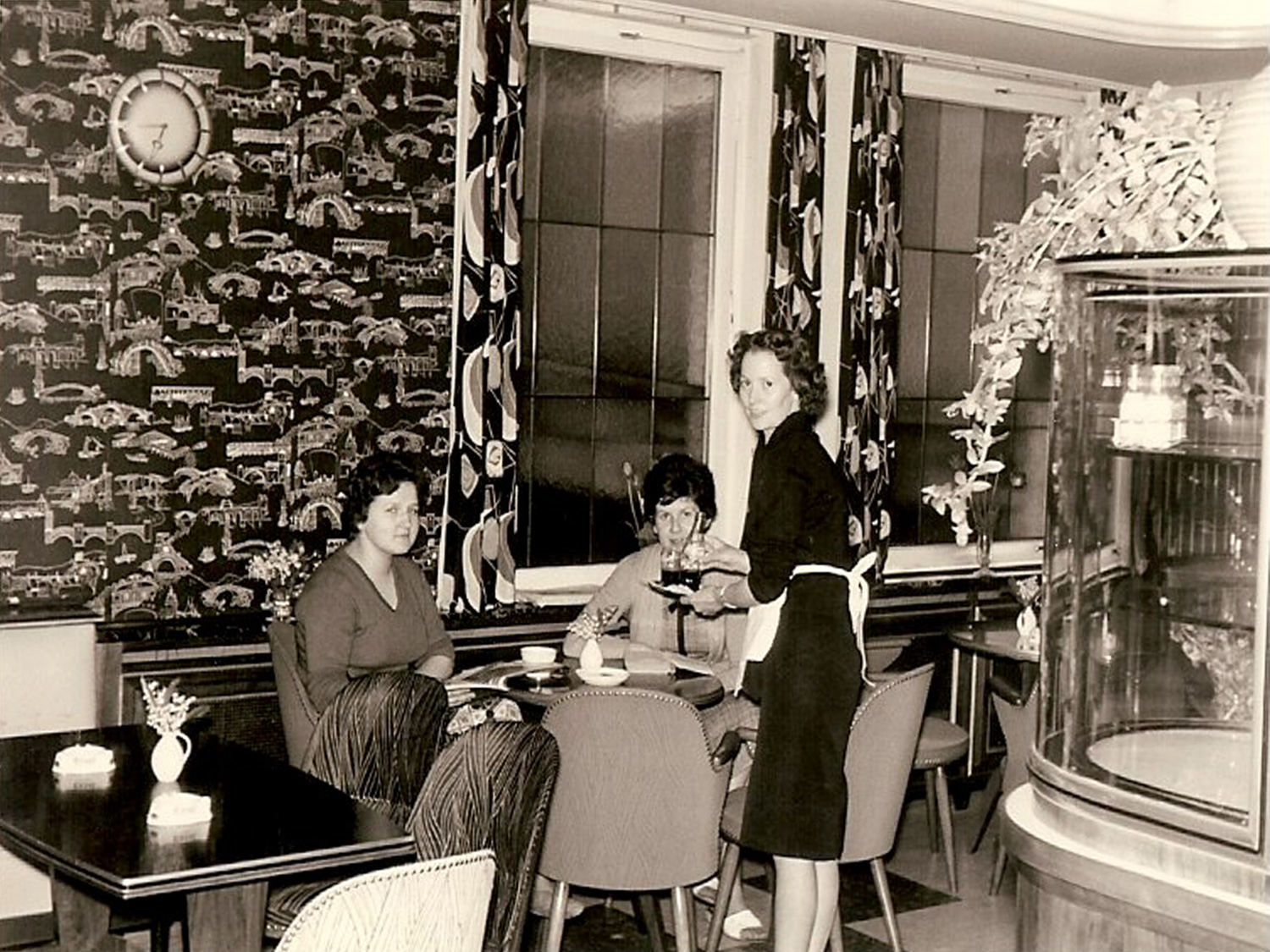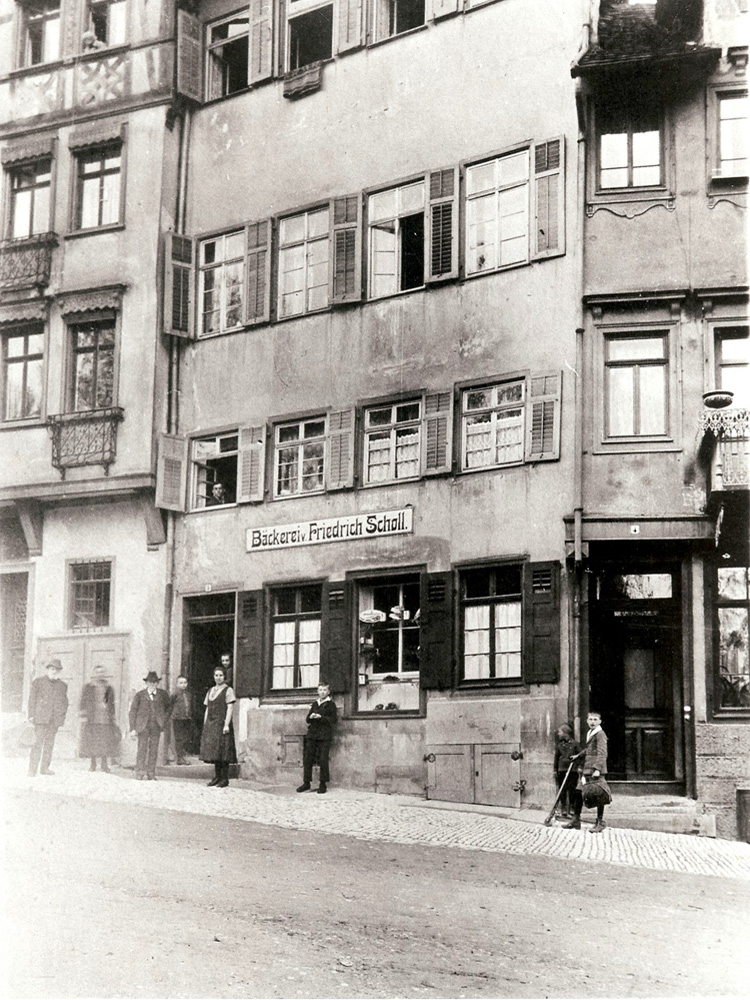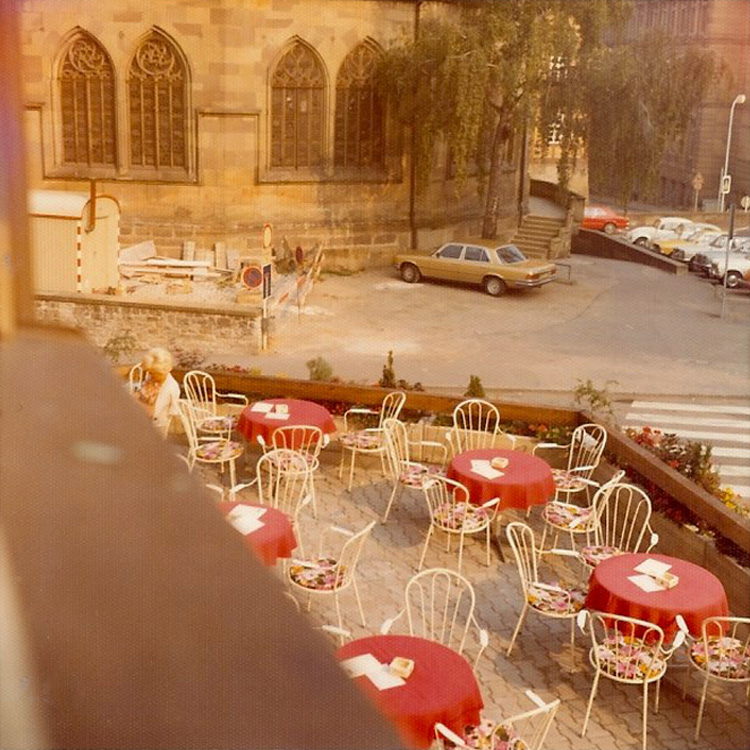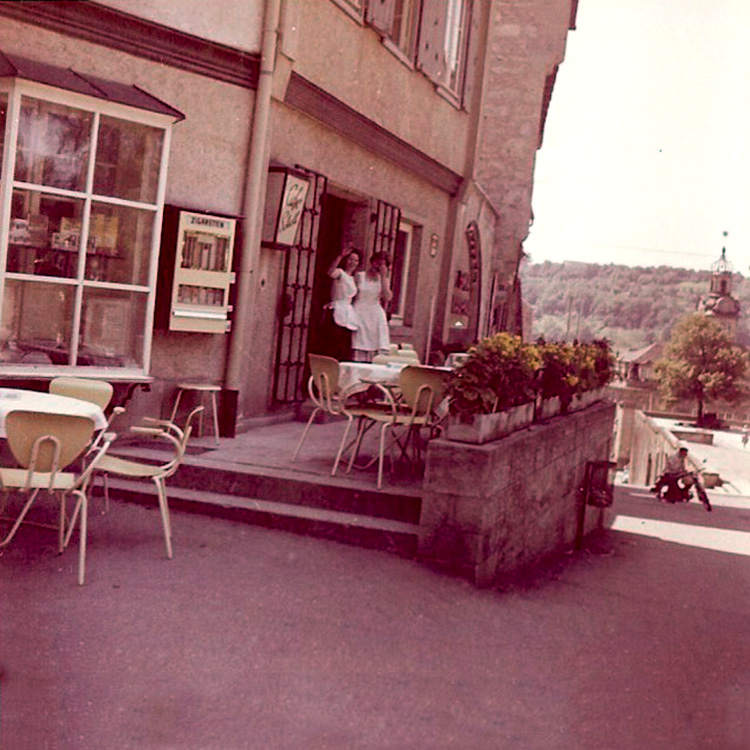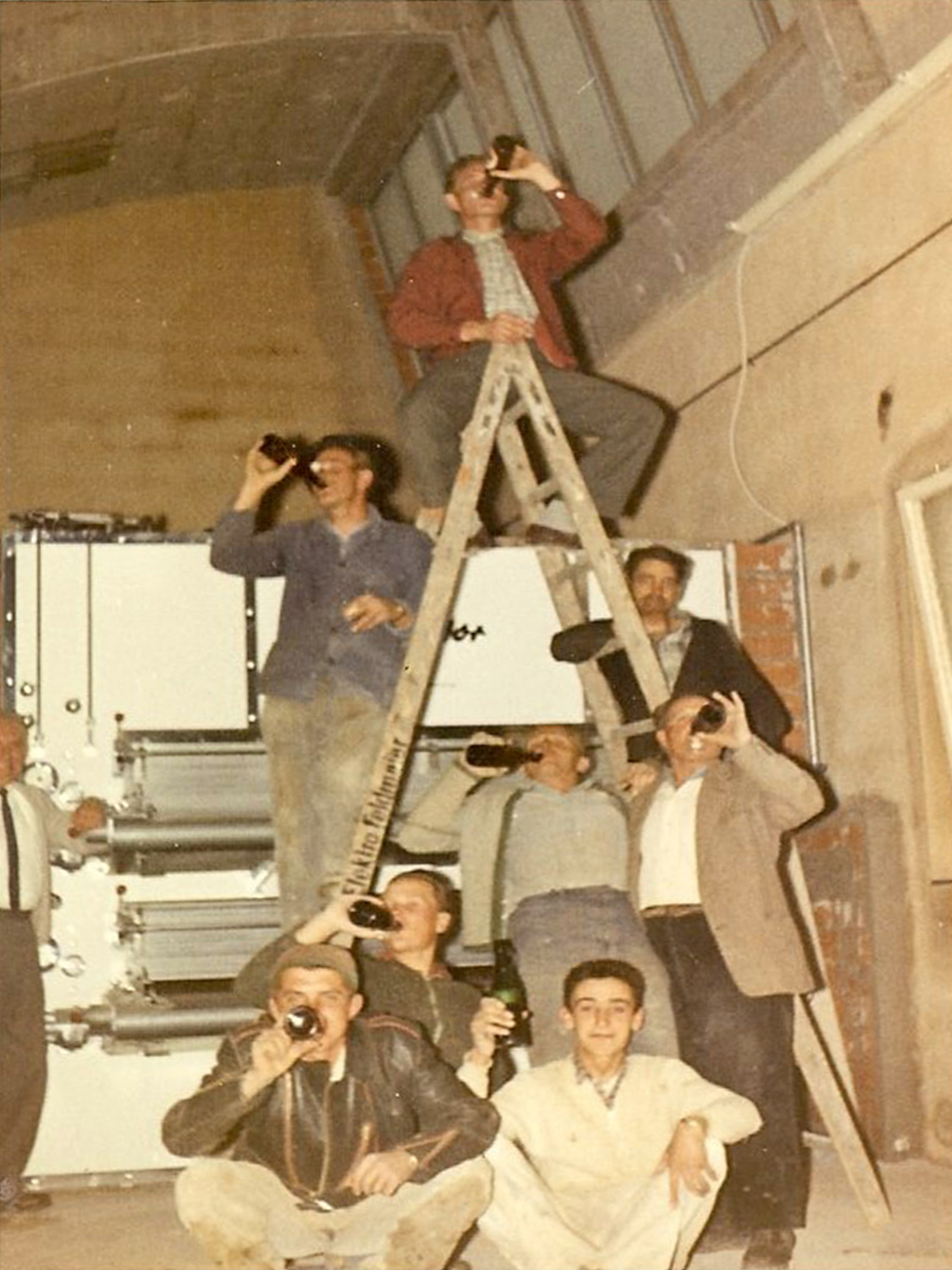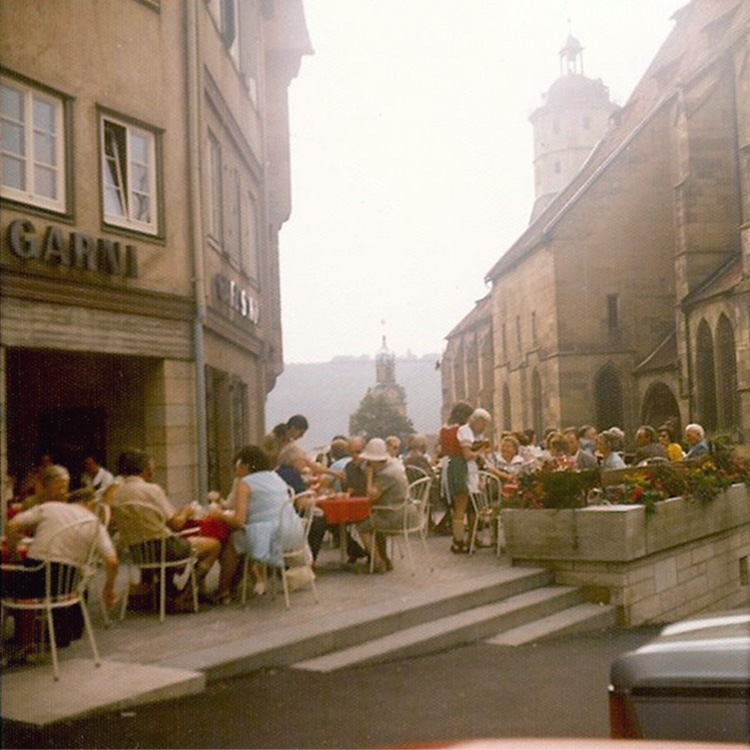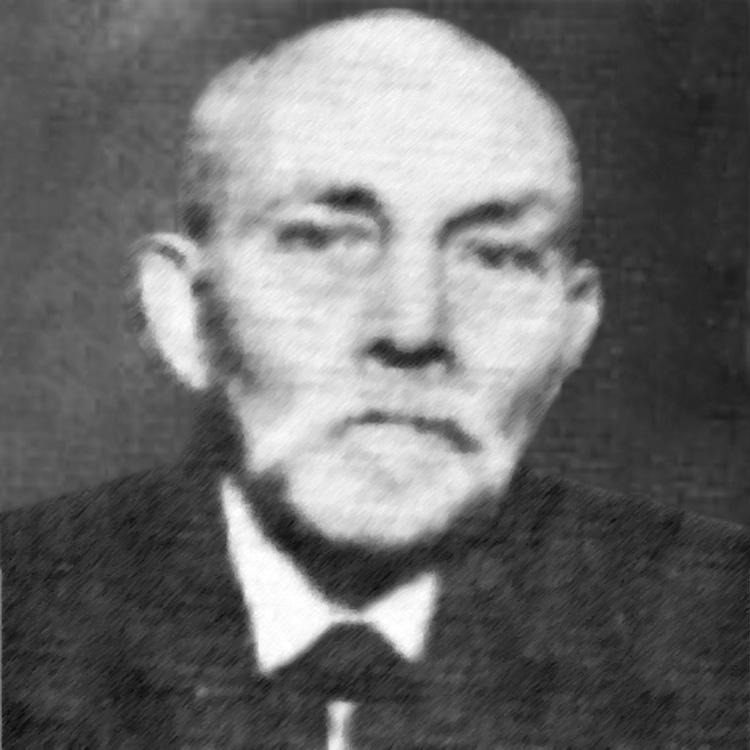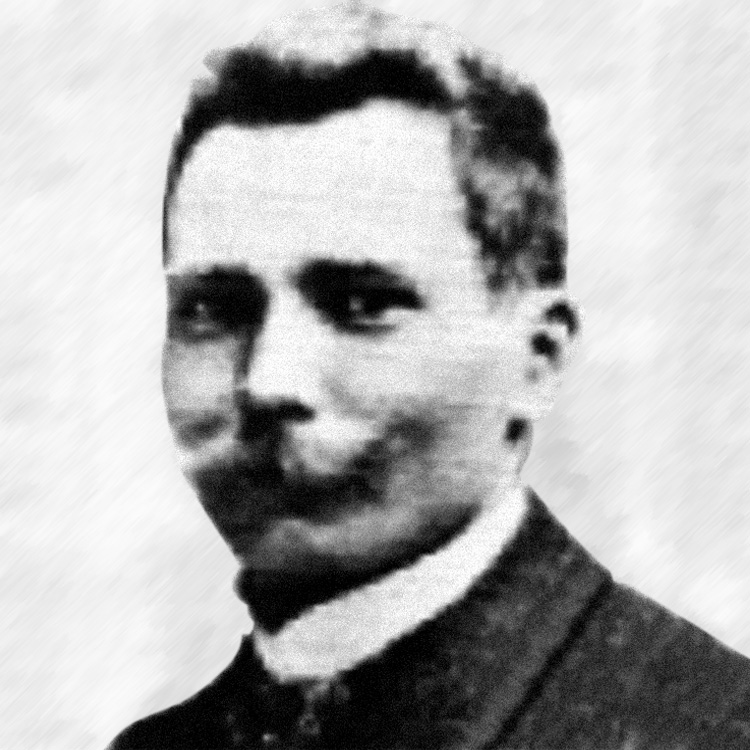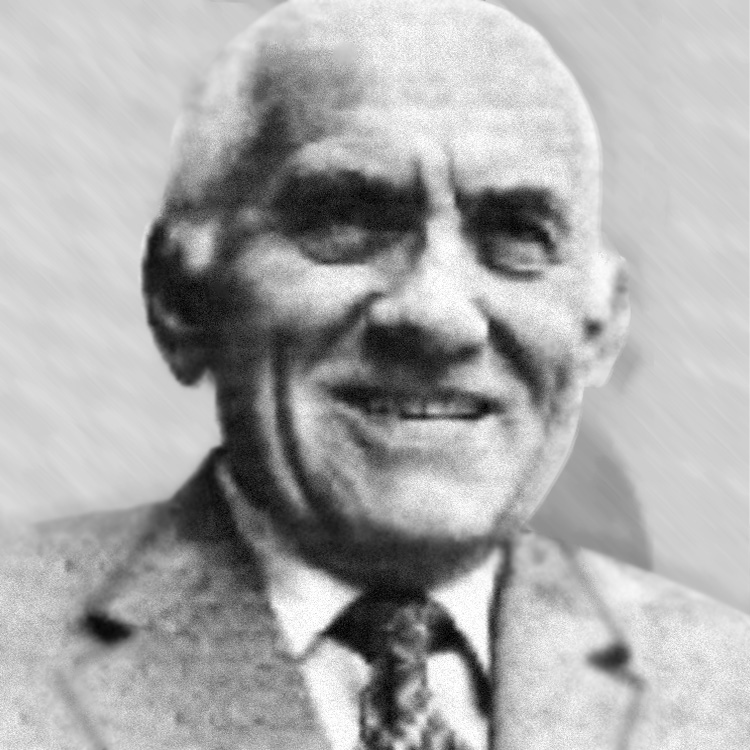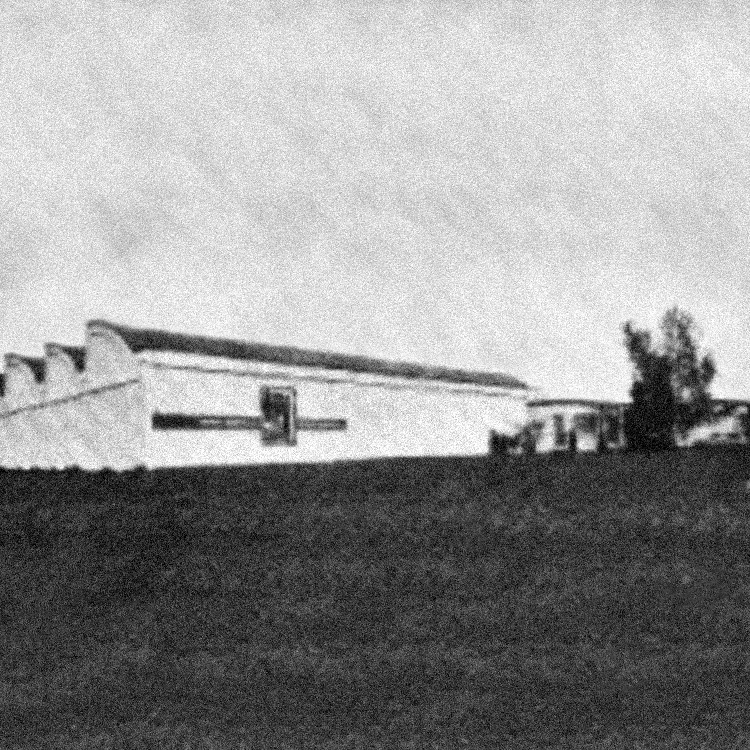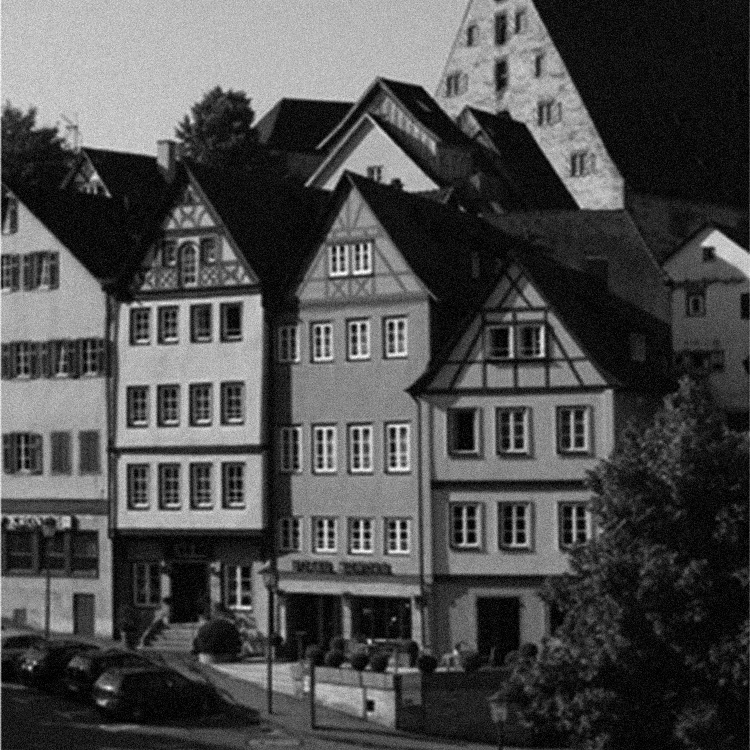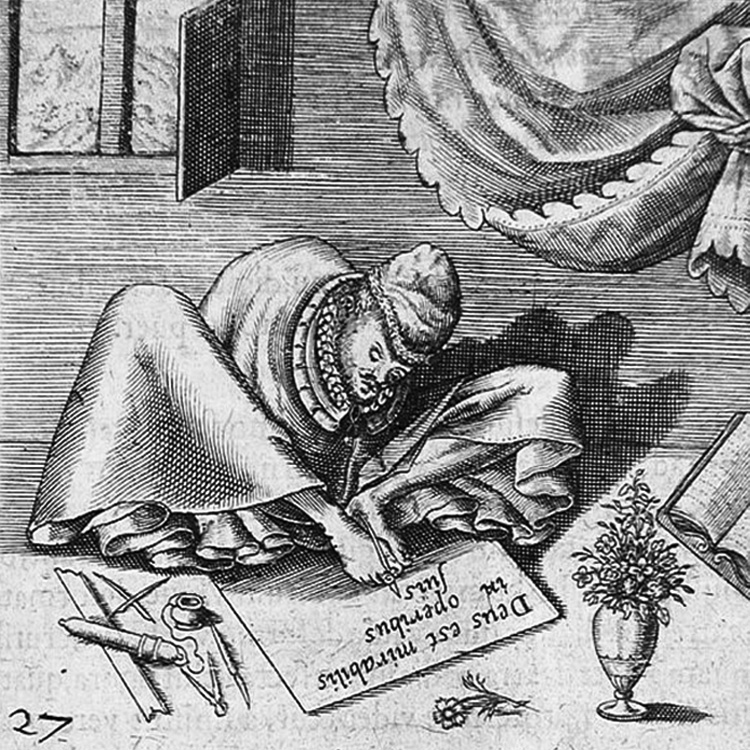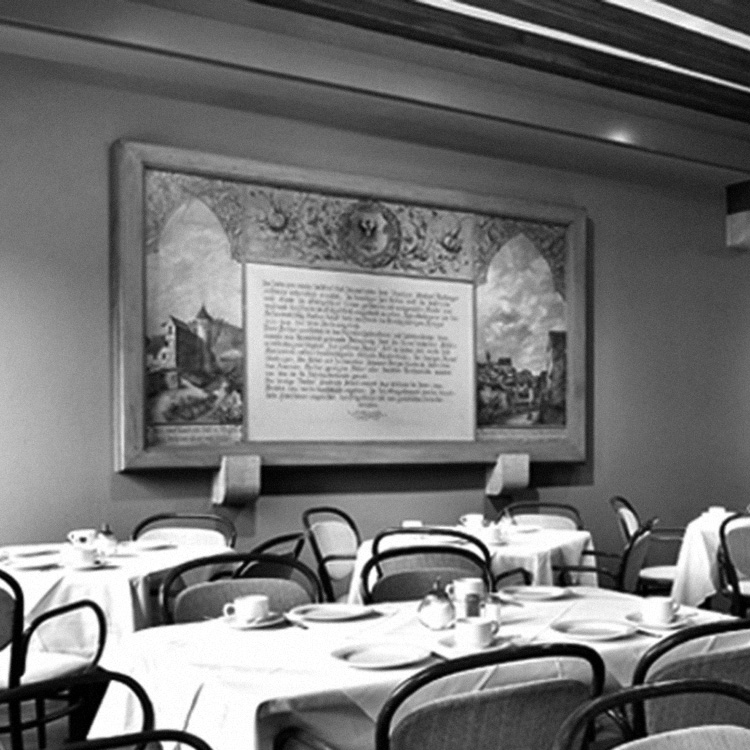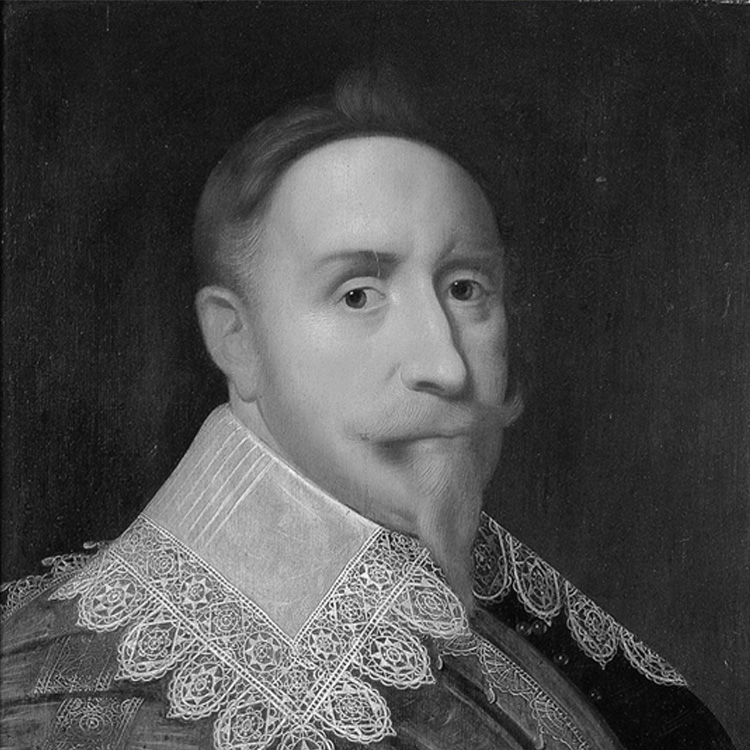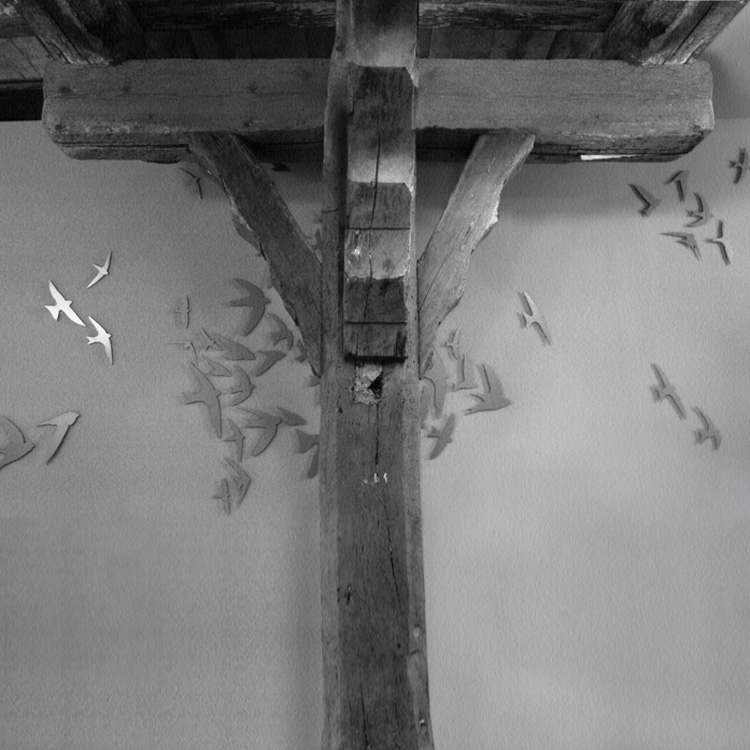Welcome to Hotel Scholl
We are located in the very center of Schwäbisch Hall on the Holzmarkt square, directly behind the St. Michael’s church.
The hotel is composed of four historic houses that have been combined into one hotel over the decades. Our oldest building, the Thomas Schweicker House, is a protected landmark that is more than 550 years old. Needless to say, each one of the rooms is unique.
My staff and I welcome you with the personal touch that has been the hallmark of the Scholl family for generations.
Since 1878, the Scholl family has been baking bread every day for the citizens of our home town. We remain committed to returning something special to our guests through steadfast dedication to the spirit and traditional principles upon which our business was founded. Over the last 138 years, the Hotel and Café Scholl have become the perfect place to stay and enjoy the heart of Schwäbisch Hall.
1878 Christian Scholl’s great grandfather, Christian Haußmann, opens a bakery in the Klosterstraße.
1904 Christian Haußmann’s son-in-law Friedrich Scholl takes over the family business.
1939 Friedrich Scholl II inherits the management of the bakery concern from his father.
1955 Friedrich Scholl II, together with his wife Hedwig, establishes the hotel and café in the adjoining building at Klosterstraße 4.
1960 Rapid growth requires relocation of the bakery operations from Klosterstraße to their own building on the outskirts of Schwäbisch Hall. The newly freed space in the town center permits the fitting of additional hotel rooms.
1961 Friedrich Scholl III takes over the management of the bakery enterprise. The Scholl family still operates the bakery today under the direction of Friedrich III and his two sons Henning and Friedrich IV.
1974 Bärbel Scholl, the daughter of Friedrich Scholl II assumes the management of the hotel and café.
1984 Eleven new hotel rooms are opened in the building at Klosterstraße 2.
1987 to 2001 Bärbel Scholl undertakes refurbishment of the hotel in several stages.
1992 The original Café Scholl closes after 37 years of continuous operation.
2001 Following the death of Bärbel, her son Christian Scholl takes over the hotel and all of the associated responsibilities at the young age of 17.
2011 The historic house of town-clerk, artist, and calligrapher Thomas Schweicker (1540-1602) adjoins the hotel at Rosenbühl 2. This heritage monument is purchased and carefully restored offering guests eight new rooms of particular quality. The café likewise re-opens in this year.
2012 The hotel and café undergo an extensive retrofit with an international design. The Café Scholl re-opens with a new livery, new menu, and extended offering.
Artists, painters and histories of the “early days“
Schwäbisch Hall is a city rich in architectural history; stretching back to the medieval period and beyond. You will find traces of this historic fabric throughout our buildings. Parts of the four houses that comprise the hotel have stood on this site for more than 600 years.
Thomas Schweicker
During 2012, we restored the house at Rosenbühl 2; the historic residence of the physically-disabled artist and calligrapher Thomas Schweicker (1540-1602). Born without arms, Schweicker became famous for painting and writing while holding a quill pen with his right foot. Known during his life as the “Great miracle man of Schwäbisch Hall”, his group of patrons included the Emperor Maximilian II and Prince Ludwig of the Electoral Palatinate. Schweicker received an Imperial Patent of nobility amongst other distinctions. Upon his death, the artist was celebrated with the exceptional honour of entombment in the choir of Saint Michael’s church, where his mausoleum still stands.
Johannes Berger
One of our houses was formerly owned by Johannes Berger, a teacher of art and drawing. Between 1889 and 1904, Mr. Berger decorated the walls of his home with frescoes depicting various of the free cities of the German Empire.
During the hotel’s comprehensive renovation in 1984, the paintings were thoroughly restored and relocated to what is now the breakfast room, where they are greatly enjoyed by our guests.
Gustavus Adolphus, King of Sweden
The building at Klosterstraße 2, where you will find our dining room, was first mentioned in written history during 1597. At that time the building served as a coaching inn and restaurant “Krone”. Upstairs, there was a paneled and painted hall where weary travelers ate and drank while their horses rested in the stables below. King Gustavus Adolphus of Sweden stabled his horses in this building during the Thirty-Years-War (1618-1648).
The Haller Bock
When the house in Klosterstraße 2 was restored in 1984, master craftsmen faithfully recreated this wooden column in the image of the original that had supported the house for centuries. “Haller Bocks” were employed in medieval construction throughout Schwäbisch Hall, and an original example from the 14th century can be seen on the ground floor of our building at Rosenbühl 2.
The First Guest Rooms
When Friedrich Scholl II opened the new Café Scholl in 1955, Christian Scholl’s grandmother, Hedwig, decided to rent out two of the rooms on the top floor (today rooms 311 & 312). It made sense to serve breakfast, since she already had an operating bakery within the building. The rooms were very simple, offering only a closet and a sink. Empty cartons served as lamp tables, and a toilet and shower were located outside the rooms on the same floor. The modern hotel you see today evolved through steady work throughout the intervening decades.


